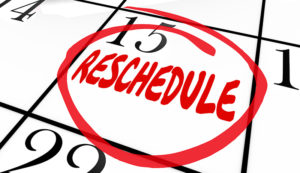The coronavirus outbreak has financially impaired Americans nationwide, affecting homeowners associations in the process. To avoid financial ruin, it is imperative to learn how to modify your HOA budget during the pandemic.
The Importance of Adjusting Your HOA Budget During the Pandemic
When COVID-19 first came onto the scene, many thought it would run its course in a short couple of months. But, here we are a year later, and more than 500,000 Americans have died from the illness. Businesses and organizations nationwide have been forced to shut down operations, either temporarily or permanently, and homeowners associations have not come out unscathed.
In fact, the coronavirus pandemic has left many citizens unemployed or with reduced salaries, leading to a rise in delinquent HOA accounts. As more and more members fail to keep up with their monthly dues, associations are left with shrinking funds. The financial struggles do not stop there, though. Many associations need to allocate more money for cleaning and disinfecting common areas just to satisfy CDC guidelines.
If you let your budget remain the same, you will soon find that you can’t pay for all the usual expenses your association incurs. This, in turn, might force your board to charge special assessments, which many homeowners still can’t afford. The only smart recourse is to adjust your HOA budget by cutting down on expenses and reserving funds for the most important items.
What to Cut From Your HOA Budget During COVID-19
You know you need to reduce your association’s expenses just to stay afloat, but the difficulty lies in deciding which specific line items to cut. Here are some of the expenses you must consider trimming:
1. Cancel or Delay Events
 Some events just aren’t worth pushing through with, especially during times of uncertainty like this.
Some events just aren’t worth pushing through with, especially during times of uncertainty like this.
Sit down with your board or events committee and determine whether or not you should postpone upcoming events or cancel them altogether. Events cost money — money that you can use for more important expenses.
Additionally, delaying or calling off events does not only make sense from a financial perspective but also from a safety perspective. Events are social gatherings, and many states still discourage or prohibit large crowds.
2. Vendor or Contract Services
Your homeowners association likely employs several vendors or contractors to perform various services in and around the community. From landscaping and trash collection to painters and management companies, these all cost money your HOA could be saving.
Of course, this is not to say that you should cut off all vendor services completely. You still need some of them to remain functional. Instead, talk to your vendors about possibly cutting down on their services without diminishing the quality of work. For example, if your landscaping company comes in every week, it may be smart to adjust the schedule to twice a month.
Apart from that, you need to plan ahead as well. Lay down the possible scenarios over the next year and what actions are necessary for each one. What if the entire state goes into lockdown mode? How will your association respond to increases in fees? When planning for future vendor services, make sure to approach it with the most pessimistic of projections.
3. Maintenance, Repairs, and Upgrades
While it is your HOA’s job to maintain the community, consider delaying any non-urgent repairs or maintenance work. Push through with time-sensitive repairs or maintenance jobs, though. For example, between replacing a leaky roof in a common area and repainting your clubhouse, it is clear that the former is more essential.
The same principle applies to major constructions and improvements. If your association can hold off on an upgrade or renovation, it is best to postpone it. Ask your contractor to reschedule and have them put it in writing. You need the extra money right now.
4. Insurance
Insurance is one of the most expensive items in an HOA budget. It is also one of the most important ones. But, that does not mean you can’t cut back on your insurance premiums, even just a little bit. Many insurance policies are vital, such as liability insurance, D&O insurance, and theft insurance. You can assess your insurance policies, though, to find areas where there is room for adjustment.
Talk to your association’s insurance agent about possibly cutting back on your coverage or deductibles. You can also ask them for a rate reduction or a discount, particularly if all of your policies are under the same provider.
5. Administrative Expenses
 When put together, administrative expenses can total thousands of dollars.
When put together, administrative expenses can total thousands of dollars.
That’s thousands of dollars you could be spending on other, more significant costs. Some examples of administrative expenses you can cut back on are professional fees and office supplies.
If you employ a management company or an accounting firm, ask them for some breathing room. Maybe they can offer you a discount or you can reduce some of their non-essential services. As for office supplies, it is a good idea to find cheaper alternatives. For example, if you put out a monthly newsletter, consider transitioning to a paperless one instead. An HOA website or even something as simple as using email can help you cut down on costs.
What Not to Cut From Your HOA Budget During COVID-19
If there are non-essential expenses you can trim, then there are, of course, essential expenses that must remain completely funded. These are the expenses to keep in your HOA budget during the pandemic:
1. Cleaning and Disinfecting Costs
Health crises like the coronavirus pandemic naturally make cleaning and disinfecting more important. Therefore, your association’s cleaning costs will likely increase as well. This is because you need to schedule more frequent cleaning and disinfection for common areas. Additionally, you may need to install stations for hand sanitizers all over the community. Still, even with additional cleaning, you must keep the association’s budget in mind.
2. Reserve Contributions
Many homeowners associations make the decision to suspend reserve contributions, at least until the pandemic ceases. But, unless your reserve fund is already fully-funded or over-funded, most experts don’t recommend this.
Cutting back on reserve fund contributions now will only force the board to increase them in the future. It may even lead to special assessments should unexpected costs arise or budgeted costs come up sooner than expected. Unless your association’s survival hinges on it, don’t reduce reserve contributions.
3. Personnel
 Although employee salaries take up a large chunk of your budget, don’t cut down on personnel more than you need to.
Although employee salaries take up a large chunk of your budget, don’t cut down on personnel more than you need to.
The pandemic is a stressful time, and there is a lot of work that must get done. If you get rid of most of your staff, you might end up with a few people who can’t handle the multitude of tasks leftover. This can lead to missed or postponed work.
The key is to strike the right balance so that you remain with an adequate amount of staff members while still remaining financially solvent.
Ratifying Your HOA Budget During the Pandemic
For many homeowners associations, budget ratification is a requirement, whether by state law or their governing documents. In North Carolina, for instance, planned communities formed after January 1, 1999, must ratify their budget according to the provisions found within the Planned Community Act. Condominiums, regardless of when they were formed, must ratify their budget according to the Condominium Act.
Normally, HOA boards present and ratify the budget at a meeting attended by the membership. Unfortunately, state executive orders and CDC guidelines don’t allow large gatherings of people, especially indoors. This is where virtual meetings and written ballots come in.
Homeowners associations can utilize online platforms such as Zoom, GoToMeeting, and Microsoft Teams to hold budget ratification meetings. In some cases, corporate governance provisions will allow boards to ratify the budget through the use of written ballots. For instance, in North Carolina, the Nonprofit Corporation Act lets associations take action (such as ratifying a budget) without a meeting, provided it meets certain requirements.
Make sure to check your own state laws and governing documents to see how you can proceed with ratifying your budget without an in-person meeting. You can also ask your HOA attorney for advice.
Not an Impossible Feat
Planning your HOA budget during the pandemic is certainly a difficult task. But, with proper forethought and careful consideration, you can significantly cut down on non-essential expenses and keep your association from accruing bad debt. While you can’t increase dues or stop collecting them even while experiencing a crisis on a global scale, there are things you can do to work with what you have.
Budget planning is not for everyone. If your board needs help with budget preparation and execution, hire an HOA management company like Clark Simson Miller. In addition to budget planning, we can also handle other administrative tasks, greatly reducing your administrative costs. Call us today at 865.315.7505 or email us at help@csmhoa.com for more information.
RELATED ARTICLES:
- HOA Remote Meeting Options In The Time Of The Coronavirus Outbreak
- HOA Remote Management During Coronavirus Pandemic: How Can It Help?
- 8 Tips To Manage Your HOA Budget The Right Way

